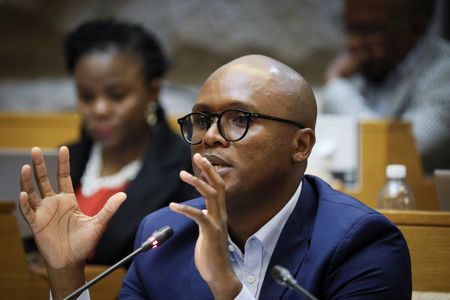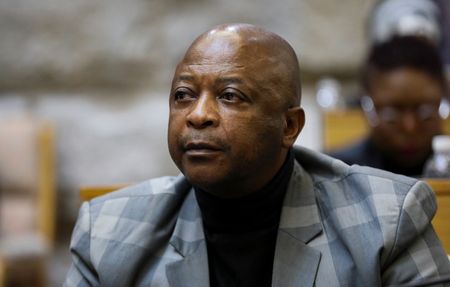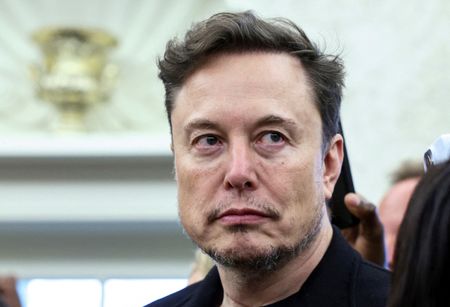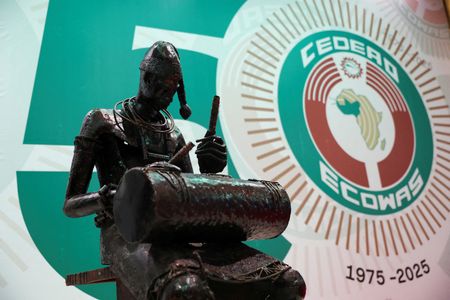By Nqobile Dludla and Bhargav Acharya
JOHANNESBURG (Reuters) -South Africa is not planning to water down its Black economic empowerment laws just to suit Elon Musk’s Starlink, a minister said on Tuesday, responding to criticism of policy changes he announced days after President Cyril Ramaphosa met Donald Trump.
The policy changes would allow communications companies, including Starlink, to bypass a requirement to sell 30% of the equity in their local subsidiaries to historically disadvantaged groups, instead recognising investments in things like digital infrastructure.
The changes were published on Friday, the day after Ramaphosa returned from the United States on a mission to persuade Trump to make deals with his country rather than scold and punish it.
Ahead of the Trump meeting, Ramaphosa’s spokesman said business opportunities for companies owned by Trump’s billionaire ally Musk would be discussed, though Ramaphosa subsequently said Starlink did not come up.
“We are not attempting to open a special dispensation for Starlink or any other company or an individual,” Communications Minister Solly Malatsi told a parliamentary committee.
“Transformation is sacrosanct in our country … it’s a non-negotiable in order for the country to achieve its aspirations,” Malatsi said, referring to government efforts to address racial inequalities dating back to the colonial and apartheid eras.
Last year Malatsi started working on a policy directive on “equity equivalent” programmes, saying it was needed to accelerate broadband access and bring in multinationals who could not comply with local equity ownership rules.
Starlink’s parent company SpaceX then wrote to the telecommunications regulator criticising local shareholding laws while backing equity equivalent programmes.
Opposition lawmakers, and the chairperson of parliament’s communications committee, have criticised Malatsi for going too far to appease foreign businesses like Starlink.
On Tuesday they questioned the timing of his draft policy, coming so soon after Ramaphosa’s meeting with Trump.
Malatsi insisted equity equivalent programmes were consistent with empowerment laws. He said his aim was always to publish a draft policy recognising them by the end of May.
“There is no underhand effort … to railroad this into the South African public,” he said.
South Africa’s Black empowerment laws apply to all industry sectors, not just telecoms, but different ownership requirements apply to different sectors.
(Reporting by Nqobile Dludla and Bhargav Acharya;Editing by Alexander Winning and David Holmes)










